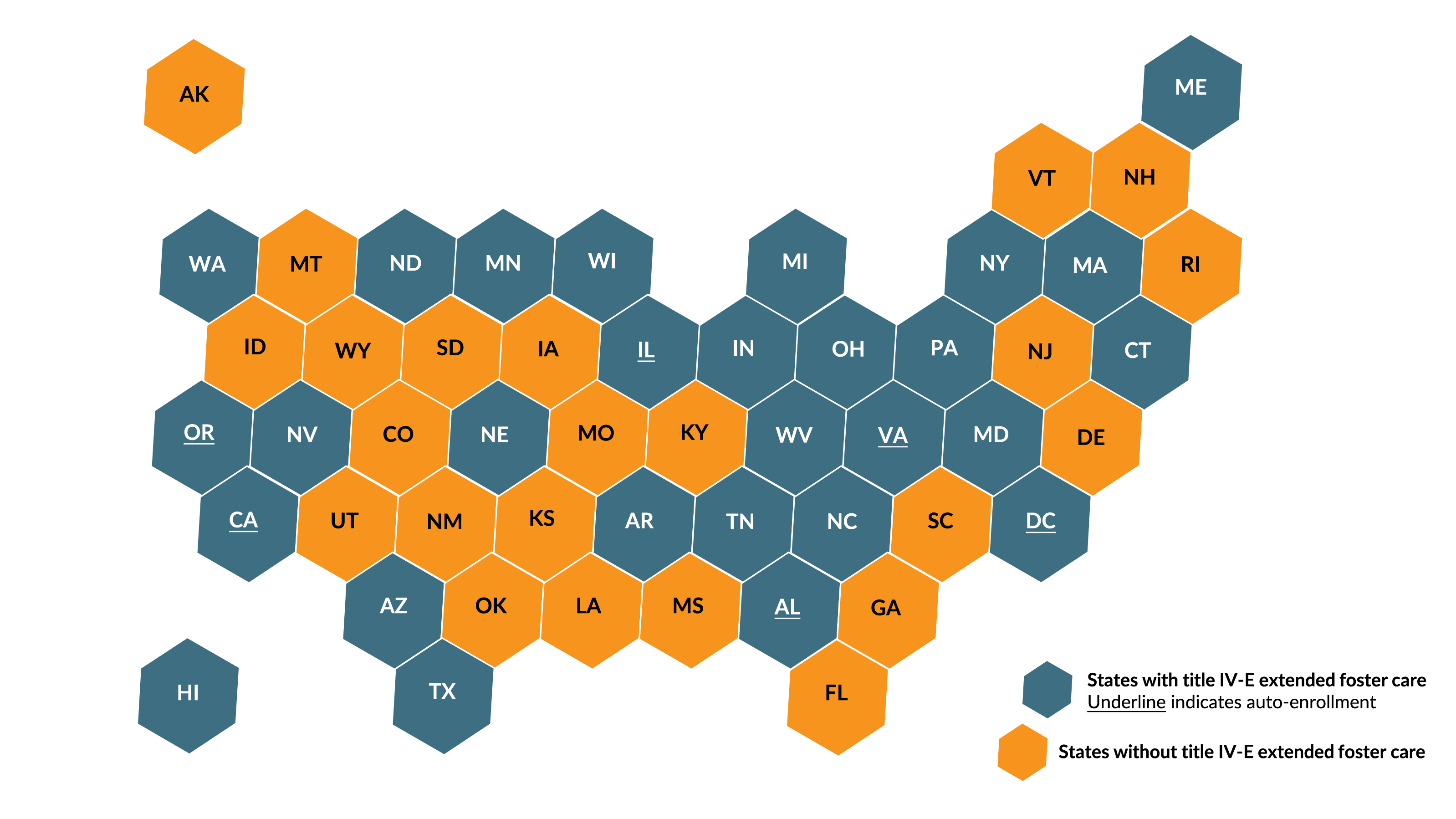
Feature
October 2023 | No. 6-2023
Foster care is designed as a set of supportive services for children and adolescents who have been removed from their family’s care due to unsafe and/or unstable living conditions. Foster care provides a temporary living environment until the youth’s parent, primary caretaker, or an adoptive family can provide a permanent home.
Because foster care is an extreme intervention—and one that has mixed effects on youth and their families—research examines the challenges youth face when exiting foster care. These include mental health concerns, homelessness, substance abuse, underemployment, and educational barriers, to name a few.
- 58% of foster youth complete high school compared to 84% of non-foster youth.
- 70% of foster youth aspire to go to college, but only 32-45% ever enroll (vs. 67% of the U.S. population), and only 3-11% ever graduate.
- After 6 years of college, 72% of foster youth have no degree/certificate compared to 57% of low-income students overall and 49% of the general population.
In addition, there are persistent disparities in foster care experiences and outcomes by race and ethnicity.
- Black and Indigenous youth remain historically overrepresented in the foster care population.
- Black youth with experience in foster care have 20% lower odds of achieving similar employment or substantial earnings as compared to White foster care youth.
- Hispanic youth with foster care histories have 10% lower odds of achieving stable housing compared to non-Hispanic foster care youth.
Many of the challenges youth and emerging adults with foster care histories face stem from a lack of connections and mentorship to help guide their transition to adulthood. Circumstances which tend to increase the likelihood of connectedness include stability in foster placements, consistent educational arrangements, mental health support, pregnancy prevention, and housing support. Such supportive circumstances can create stronger connections between current or future employment and educational opportunities. One study found that slightly less than half of former foster care youth were employed at age 25-26, compared to about 70% of their peers who had not been in foster care. Youth who have spent time in foster care can benefit from stable kin and community connections—relations often lost as a result of being removed from their networks. Mentors and kinship connections can buffer against the impacts of disconnection and promote overall well-being.
Despite common challenges, youth and emerging adults with foster care histories are often very resilient. Dr. Svetlana Shpiegel, a professor of social work and child advocacy at Montclair State University, defines resiliency as “positive adaptation in the context of risk or adversity . . . doing well in the presence of risk.” Shpiegel refers to resiliency as “a state, not a trait.” Resiliency emerges as a protective factor for youth navigating various foster care contexts and experiences.
Policy Implications
Extended Foster Care (EFC) services provide assistance in navigating the path to adulthood for emerging adults with foster care histories who are age 18 to 21. Nearly all U.S. states and territories offer some form of EFC coverage to youth in care at age 18, and 28 states (plus Washington DC) have enacted legislation for extending foster care benefits from age 18 to 21. Examples of EFC services may include academic support, career preparation and employment training, and mentoring and counseling. services. Research shows that not only is it important that EFC services are available to young adults transitioning out of foster care, but also services that support youth while they are in foster care, which will help promote resiliency and reduce the challenges inherent in exiting foster care and transitioning to adulthood.

https://www.gao.gov/assets/gao-19-411.pdf